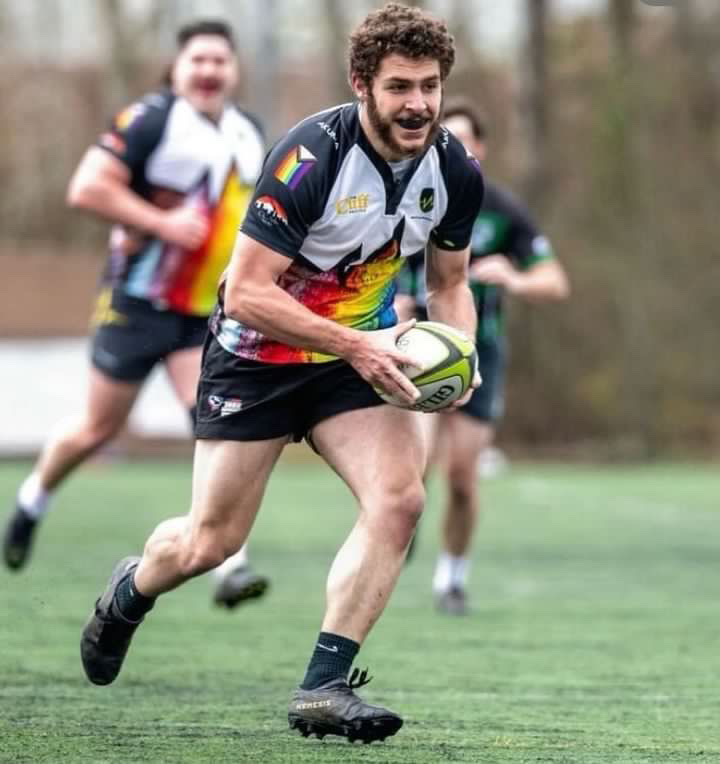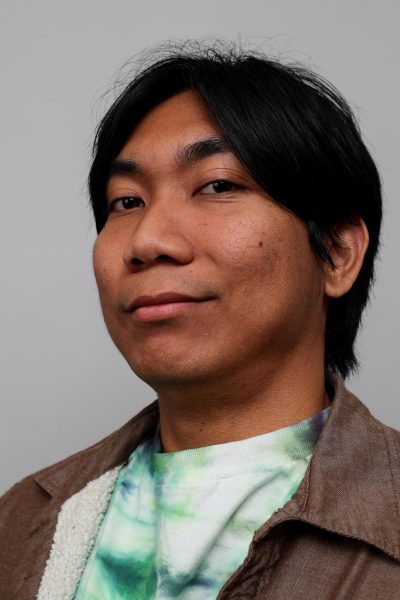Rugby continuing to grow
How to increase interest in a game meant for everyone
May 2, 2023

Rugby is considered one of the most popular sports in the world and is played on every major continent. However, in the Pacific Northwest, rugby is much lesser known compared to conventional major sports such as baseball, football or hockey.
The Seattle Seawolves are a Major League Rugby team based in Tukwila, Washington. Despite a dedicated fanbase, relatively few Seattlites or students at Seattle Pacific University are aware of or interested in the team or the sport.
Senior global development studies major and history minor Micah Witherow has been a fan of the Seawolves for three years.
“I grew up overseas in central Africa [where] rugby is one of the national sports, so I grew up watching rugby … When I transitioned back to the States, I felt like I kind of lost [interest] until a person living on my floor in Ashton my freshman year introduced me to Major League Rugby and the Seattle Seawolves,” Witherow said. “Over the past few years, I’ve gotten ingratiated into the community, gotten to meet some of the players, and some of the ownership. I regularly go to the watch parties, and I’ve made a lot of friends there. I’ve gone to a couple of games, it’s a very tight-night community.
In today’s digital age, Witherow believes the greatest way to draw more attention to rugby is through television contracts.
“Rugby is not readily available on TV like something like the NFL or the NBA. They have great marketing contracts, which has really allowed their leagues to grow and find great financial backing, which makes it easier for the common sports fan to find it. With rugby, only recently has it gotten onto major cable networks, typically aired on FOXSports2 or ROOT Sports. If you’re not looking for rugby, it’s very hard [find]. I think if rugby wants to continue to grow, they need to make it more readily available to the average sports fan who might accidentally stumble upon it.”
Center and wing Martin Iosefo and loose prop Jake Turnbull of the Seawolves said the best route to increasing interest is through community and school outreach.
“Having the professional league here definitely helps, [as well as] going into each level, each age group … as a competitive sport in the schools and colleges … you definitely want to grow the game and get the young group involved early on, because [then] you get the support from the family and the local community …. Rugby is growing, and it’s on its way to compete with other nations,” Iosefo said.
Turnbull emphasized the inclusiveness of rugby.
“I’d probably start with maybe students, getting out to UW and that crowd. The best thing about rugby is that it’s a very open game,” Turnbull said. “You can come onto the field and talk to the players, you can go upstairs and [hang out] with the players. It’s a very open and interactive game; it’s open to any shape or size. If I was to try to start getting the word out, I’d start with the younger crowd.”
Scrumhalf for the Seawolves, Karl Keane, commented on the cultural ties of rugby and how its foreign roots impact the interest of local sports fans.
“Obviously, it’s a foreign game, so most of us here have some sort of tie to another nation, like myself, because it’s more well-known there, just like American football would be here. I definitely think that has to do with it.” Keane said. “I’m originally from Ireland; I’ve played rugby my whole life. I’ve also lived in Seattle for the past eight years, and there’s a lot of rugby going on, but I think we can do a little bit of a better job getting the word out there.”
Senior exercise science major Jared Hubbell plays semi-pro rugby and is set to play Division 1 in graduate school in England following graduation from SPU this year.
“Unless you’re in rugby, it’s fairly unknown, but once you start looking into rugby, you’ll actually notice there’s a lot of teams in the area. There’s a whole league called PNRFU, Pacific Northwest Rugby Football Union, and there’s a lot of clubs nearby,” Hubbell said. “Seattle is a great place to start playing because you’re sort of centralized to all the different teams. If you start looking around, you’ll start seeing stuff, but yeah, it is more of an uncommon sport compared to a lot of other sports.”
Hubbell shared that SPU once had its own rugby club and that it would be worthwhile to revisit.
“I think SPU would be a great place to start,” Hubbell said. “I don’t know if many people know this, but SPU actually used to have a rugby team in the early 2000s. A player in my old club team used to coach for Seattle U; he said they played a couple of games against SPU’s team in the early 2000s.”
Iosefo encourages anyone who’s interested to stop by the Seawolves’ home field at Starfire Sports Stadium in Tukwila, Washington.
“If you ever want to check us out, we’re here at Starfire. We’re going into our fifth championship journey. We won the first two championships, and we took second last year, so we’re definitely going for another run.” Iosefo said.
Hubbell hopes that more students will take interest and learn more about rugby.
“If anyone wanted to start getting into rugby, this is the place to do it,” Hubbel said. “If you want to play rugby, or if you want to learn more about it, just take those first steps to get into it. Once you get into the fold, it’s really easy to learn more about rugby and get into the mix of it.”



























































































